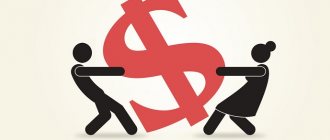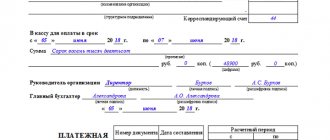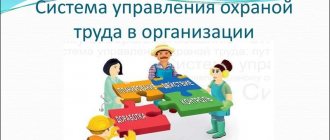Until 2015, a motorist could be deprived of a driver’s license solely for traffic offenses, and only traffic police officers dealt with this issue. In 2021, the bailiff has the right to restrict driving for certain categories of debtors. Such a serious measure, according to legislators, should become another way to influence individuals who evade paying debts under various pretexts.
Driver's License Restriction Law
Since January 15, 2021, the Russian government has developed a system for restricting the validity of a driver’s license, which should be introduced by bailiffs as a last resort measure against a malicious debtor. This became possible after the introduction of innovations to Federal Law No. 229 in the form of additions and changes to the relevant articles of the law. Article 67.1 clearly states cases of deprivation (restriction) of the driver’s license of citizens who are non-payers and debtors who have the status of individual entrepreneurs.
Attention! If you have any questions, you can chat for free with a lawyer at the bottom of the screen or call Moscow; Saint Petersburg; Free call for all of Russia.
Restriction on the use of a driver's license is a temporary measure of influence on debtors during the period of repayment of the debt. This means that a person will not be able to drive any vehicle, whether owned or registered to another person. It turns out that for the application of this clause of the law, the form of ownership does not matter. Moreover, in 2021, this applies to any type of transport: land, water and even air, if a citizen owns one.
Application to the court to restrict the debtor's rights to drive a car: sample
The application for the imposition of a restrictive measure through the court indicates:
- Details of the applicant and alimony payer – full name, residential address.
- The court where the claim is filed.
- The document within which the unfulfilled obligation arose is an agreement on the voluntary payment of alimony.
- Petition for deprivation of the right to drive transport until full repayment of the overdue debt and other payments under the document.
In addition to the application, copies of documents that relate to the specified requirement are attached:
- alimony agreement;
- certificates of debt from the bailiff;
- information about the employment of the alimony worker, etc.
Sample statement of claim to court:
A completed claim example can be downloaded:
Expert opinion
If you are not sure that you can correctly draw up an application using the sample yourself or you have an individual case that does not fit the template, then you can contact me directly. All information on how to contact me is on my personal page>>>
For what debts can a driver's license be revoked in 2021?
A new article 67.1 has been added to the text of the federal law “On Enforcement Proceedings”. It contains part 2, which lists cases of debt obligations for which the judicial executive authorities may introduce restrictions on the use of a driver’s license in 2021. Such cases include the following types of debt obligations:
- unwillingness to pay child support;
- non-payment of compensation for injury to health or loss of a breadwinner in the family;
- non-payment of moral and property damage caused during the commission of a crime;
- ignoring non-property requirements regarding the upbringing of children;
- avoiding payment of administrative fines for traffic violations.
All this is provided that the amount of debt must be higher than 10,000 rubles.
Application to the bailiffs for deprivation of the driver's license of the alimony debtor, sample
The appeal to the bailiff contains the following information:
- Applicant details – full name, contacts (address, telephone).
- The structural unit of the service to which the application is submitted.
- Information about the document that served as the basis for initiating proceedings - name, number, details of the debtor.
- Number of enforcement proceedings.
- The grounds for taking a restrictive measure are failure to voluntarily fulfill obligations by the alimony provider.
- Request to establish restrictions on driving a vehicle.
USEFUL INFORMATION: Objection to a court order for alimony, sample
Copies of the court decision and the order to initiate proceedings are attached to the application.
Sample application:
An example can be downloaded:
Expert opinion
If you are not sure that you can correctly draw up an application using the sample yourself or you have an individual case that does not fit the template, then you can contact me directly. All information on how to contact me is on my personal page>>>
The procedure for applying the law on deprivation of rights
Before deprivation of rights for debts in 2021, bailiffs contact the debtor and insist on paying off the debt. At this stage, you can easily avoid the introduction of restrictive measures - show your readiness to fulfill your obligations.
If in advance before the resolution comes into force, you pay not the entire debt, but at least only part of it, then such actions will indicate a person as a person who is ready to pay the debt without resorting to extreme measures. Employees of the federal enforcement service will no longer have grounds, and there will be no reasons, to apply this law to a citizen.
If the debtor does not show a desire to voluntarily get rid of his debt, then according to federal law in 2021, bailiffs are given the right to make a decision by which restrictions are imposed on a citizen on the right to use a car.
You must understand that according to the law, bailiffs do not have the ability to deprive a driver’s license; it turns out that they cannot take away a license. Bailiffs only impose temporary restrictions on their use.
If the demand for which enforcement proceedings are being conducted is not a court document or is not used in accordance with a court order, then the bailiff himself or a representative of the claimant has the opportunity to go to court with a statement to establish such a measure of influence on a person as a temporary restriction on the use of rights. After a court ruling, based on the law, the bailiffs have the opportunity to enforce such a measure of influence on the defaulter.
The decree that is handed to the debtor provides detailed explanations about the need to pay the entire amount of the debt, and the inability to drive a car or other vehicle until the day the decree is canceled. In 2021, the bailiff is personally required by law to serve the debtor with a notice of suspension of the driver's license for an indefinite period.
There is no reason to panic right away. After delivering the document, the driver has 5 legal days to quickly resolve the issue and pay the debt. After this, he presents the payment receipt to the bailiff, and a day later the rights come into effect again.
Submitting an application
To restrict a person’s driver’s license for debts, it is necessary to submit a corresponding application to the local FSSP office. The document is drawn up in the name of the senior bailiff and is presented in two copies.
This application must contain information about the parties (full name, place of residence) and reflect the essence of the requirements.
Photocopies must be attached to the document:
- documentation reflecting the amount of debt;
- court decisions;
- the decision made against the debtor;
- other documents proving the legitimacy of the claims.
The FSSP employee must register this application by placing an acceptance mark on the copy of the person who applied.
ATTENTION! Look at the completed sample application to the FSSP for a temporary restriction on the debtor’s use of a special right:
Punishment in case of non-compliance
If the debtor ignores the requirements for the fulfillment of debt obligations, the bailiff notifies the citizen about the entry into force of a restriction on the use of the special right to drive vehicles. And notifies the traffic police about this measure. There, in turn, they enter this information into a data bank. If the debtor continues to drive the car after the decision comes into force, he will face penalties. The validity of a driver's license is limited, and traffic police officers have the data in their database.
When a traffic police officer stops a car and checks a driver’s license, the rules of the law on administrative offenses may be applied to the violator in 2021. In particular, in Article 17.17 of the Code of Administrative Offenses of the Russian Federation, for this offense it is possible to apply punishment as compulsory work for a period of up to 50 hours, or further deprivation of a driver’s license for a period of up to one year.
Submission of an appeal by the recipient of payments
As already indicated, the recipient of the payments or the bailiff can initiate the procedure for limiting the rights of the alimony debtor to drive a car (other vehicle) (on his own initiative or at the request of the claimant). To do this, it is necessary to correctly draw up an appeal to the relevant department of the FSSP or to the court.
Application forms and applications can be found at the information stand in the court or territorial division of the bailiffs.
Conditions to which the law does not apply
If the debtor does not agree with the decision of the bailiff, then in 2021 he can file a complaint with the court against the actions of representatives of enforcement proceedings. Moreover, the legal framework identifies a number of cases that do not make it possible to put this law into effect. Categories for which it is impossible to apply restrictions on the use of a driver’s license:
- The use of this type of transport is the only source of income for a citizen. This happens quite often when a car helps a citizen provide for his family.
- The debtor's family lives in a remote area, and the vehicle helps him and his relatives get home. For some settlements where there is no direct route service, this is a fairly pressing issue.
- The debtor is recognized as a disabled person of group 1 or 2, or he supports a dependent disabled person of group 1 or 2, or a disabled child, and the car helps them move.
- The amount of debt is less than RUB 10,000.
- The debtor makes payments on the debt in installments, or he has obtained a deferment in payment of the debt.
If, after the introduction of a restrictive procedure, a citizen’s conditions have changed and he falls into one of the restrictive categories, then by collecting the necessary documents and presenting them to the bailiff, he will immediately receive a decision to cancel the deprivation of a driver’s license for debts. In a day, he can already get behind the wheel legally.
The law does not indicate the possibility of restricting a driver's license based on credit debt. This issue is being discussed, but there are no additions or changes to the loan account yet in the law. So neither credit debt, nor mortgage debt or non-payment of housing and communal services will be able to cause deprivation of rights for debts in 2021.
Who cannot be deprived of their rights for debts
There is a list of citizens who cannot be deprived of their driver’s license, even despite the presence of unpaid alimony or loans.
These include the following persons:
- whose debts do not exceed 10,000 rubles;
- who cannot do without a car due to their disability or because of the need to transport disabled people of the first/second group who live in their family;
- if for the driver the car is the only source of income in the family. These could be truckers, taxi drivers, drivers of transport companies, etc.;
- who cannot pay debts or loans due to certain circumstances or they have received a deferment in payments;
- living in an area that can only be reached by car, and the confiscation of a driver’s license will deprive them of this opportunity.
There is also a certain exception. Before the withdrawal of rights, a person may not have belonged to any of the above-represented groups of people, but if, after deprivation, he began to belong to such groups (for example, he started working as a driver or became disabled), in this case, his rights should be returned to him.
Child support debt
Mainly, Article 67.1 of Federal Law No. 229-FZ “On Enforcement Proceedings” is aimed at resolving the issue of persistent defaulters of social debts, in particular alimony arrears. After all, it is difficult to find measures to influence a person who does not want to pay his child the amount required by law. The inability to drive a car will be a serious circumstance to make the debtor think about it and start paying the debt. For many mothers raising children alone, this law is their last hope for money. It is still too early to talk about the effectiveness of this effect. After all, this is a last resort measure that is not used often.
Temporary deprivation of a driver's license for debts in 2021 applies for the period of time until debt obligations are fully fulfilled. When the rights are suspended, a defaulter who does not want or for some reason cannot pay his debt is deprived of the opportunity to drive for an indefinite period.
Driver's license restoration
Within one day after paying the entire amount of the debt and presenting documents confirming this, the right to drive must be restored, all restrictions are lifted, and the owner can again use his car. Information is sent to the traffic police about the lifting of the restriction on driving a vehicle for a given citizen. Bailiffs are obliged to ensure the timely application of court decisions, and if they are carried out, monitor the removal of these decisions.
Due to the fact that it is not a deprivation of driving rights, but only a temporary suspension of their validity, there is no need to additionally retake the theoretical exam at the traffic police or undergo a full medical examination again. The bailiff will promptly submit information about the removal from the database of records of previous restrictions that need to be removed.
If there is an agreement to defer or installment payment of the debt amount, then the bailiff does not have the right to make a decision on the temporary restriction of rights for debts.
It is advisable not to take matters to extreme measures. Do not allow a debt of more than 10,000 rubles. You can track your debts on the website of the Federal Bailiff Service. There is a database of current enforcement proceedings. You will be able to get all the information on your debts. Try to negotiate with the creditor about deferment and installment plan of the debt. If you cannot avoid a restrictive measure, contact an experienced lawyer. They will help you quickly get your rights back in a short time.
Circumstances under which a driver's license cannot be restricted
This measure of influence does not apply if:
- the debtor fails to fulfill his obligations due to a long illness or difficult financial situation (valid reasons);
- Driving a vehicle (hereinafter referred to as the vehicle) is associated with the performance of official duties or receipt of the main income. This is confirmed by the registration of the debtor as an entrepreneur providing transportation services, or an entry in the work book about working as a driver;
- in the area where the debtor and his family live, the transport infrastructure is underdeveloped, and refusal to use a car will significantly limit their livelihoods;
- the debtor or dependent family members are disabled;
- an agreement was concluded to provide installment (deferment) of debt repayment.
Supporting documents should be kept with you at all times.





